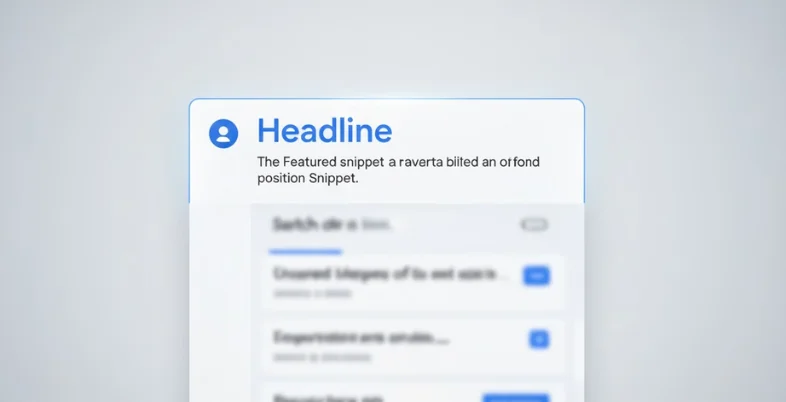Voice Search, Snippets & the Answer Engine: How Lawyers Can Capitalize Now

People now ask their devices instead of typing keywords into search bars. This shift changes everything about how potential clients find legal help online. Voice assistants like Siri, Alexa, and Google Assistant answer questions conversationally, pulling responses from sources they deem most authoritative and relevant.
Google’s answer engines and AI-driven search assistants prioritize direct answers over traditional blue links. When someone asks their phone a legal question, they want immediate clarity rather than a list of websites to visit. This transformation rewards content structured for quick, accurate responses rather than SEO tricks from a decade ago.
Law firms must optimize to capture voice and snippet visibility or risk becoming invisible to entire segments of potential clients. The strategies that worked for typed searches need refinement for this new reality. Here’s how answer engine optimization for law firms captures this growing traffic source.
The Rise of Conversational Search
Over 70% of searches are now phrased as questions rather than keyword fragments. People ask complete sentences like “Can I sue for a slip-and-fall in my apartment building?” instead of typing “slip fall lawsuit apartment.” This natural language reflects how humans actually think and communicate when seeking information.
Schema markup and FAQ pages position firms for these queries by explicitly labeling content as question-answer pairs. Search engines parse this structured data easily, understanding exactly what question each answer addresses. Pages without this markup get overlooked even when they contain perfect answers buried in paragraphs.
Examples abound in personal injury and family law where clients ask specific scenario-based questions. “Do I need a lawyer for a minor car accident?” and “How long does divorce take in North Carolina?” are questions people voice to devices while driving or multitasking. Firms answering these exact questions in structured formats win the visibility.
Featured Snippets: The New Position Zero

Featured snippets appear above traditional search results, earning the nickname “position zero” for their prominence. These boxes display direct answers to search queries, often reading aloud as voice search results. Winning a snippet means your content gets featured even above ads and regular number-one rankings.
Structuring concise, authoritative answers requires discipline to answer questions in 40-60 words using clear, direct language. Start with the answer immediately rather than building up to it through context. Use definitions, steps, or bullet-friendly formats that search engines can easily extract and display.
Tools to find “People Also Ask” opportunities reveal exactly what questions searchers ask about your practice areas. These expandable boxes in search results show related questions that Google knows people want answered. Creating content targeting these specific questions almost guarantees snippet consideration since you’re addressing proven search demand.
Optimizing for Local and Mobile Voice Queries
Most legal voice searches are location-based because people need attorneys who can actually represent them. Queries like “personal injury lawyer near me” or “estate planning attorney in Raleigh” dominate voice search volume. Geographic relevance determines whether your firm even enters consideration for these high-intent searches.
NAP consistency and Google Business Profile optimization form the foundation of local voice visibility. Your name, address, and phone number must match exactly across every online listing, directory, and citation. Google Business Profile completeness—hours, services, photos, posts—signals authority that boosts local pack rankings.
Fast-loading pages improve mobile voice ranking because voice searchers often use phones with varying connection speeds. Pages taking over three seconds to load get abandoned before users even see your content. Speed matters more for voice search than desktop browsing since people asking devices questions expect instant answers.
Measuring and Iterating for the Answer Economy
Track impressions in Search Console by question type to understand which queries drive visibility. Filter for question words like “how,” “what,” “can,” and “should” to isolate voice-friendly searches. This data reveals opportunities where you’re getting impressions but not clicks, suggesting your snippets need improvement.
Monitor snippet wins, CTR, and engagement to understand what content formats perform best. Winning snippets doesn’t guarantee clicks if the snippet fully answers the question, but it establishes authority. Track how snippet presence affects brand searches and consultation requests over time.
Update old content into Q&A formats by restructuring existing articles around specific questions. Many firms have great information buried in long-form content that search engines can’t easily parse. Breaking these into explicit question-answer sections makes content eligible for snippet consideration without creating everything from scratch.
Conclusion
Key moves to win voice and snippet placement center on question-focused content, structured data, and mobile-optimized delivery. Answer questions directly and concisely rather than dancing around topics. Use schema markup so search engines understand your content structure without guessing.
Continual testing reveals what works for your specific practice areas and geographic markets. Voice search patterns differ by region and legal specialty, requiring ongoing adjustment. What wins snippets for family law might not work for criminal defense.
Proactive answer engine optimization for law firms keeps you discoverable as search behavior evolves. The firms investing in this approach now will dominate voice search results for years while competitors wonder where their traffic went. Start optimizing today before your market becomes saturated.